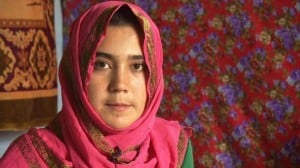For an extended analysis of India Reborn see Muslim Lookout.
CBC TV recently played a four-part documentary on India called India Reborn. The series was well-done and diverse, demonstrating India to be a paradox of a country. From filthy, filthy rich people to the dirt poor, India is a country of all colors, figuratively and literally. India also has the second largest Muslim population in the world, with the largest being Indonesia. Yet, Muslims are still a relatively small minority in the country. That is why I was quite interested in seeing if and how the documentary presented the Muslims of India. With news in recent years of rising anti-Muslim sentiment and actions, it made sense when the documentary did indeed address the issue of communal violence and tensions.

In the first part, we are introduced to Sharifa Cheeba, a Gujrati Muslim woman, who has experienced the ugliness of Hindu-Muslim violence and hate. A woman who grew up with Hindu neighbours who were like family now expresses her anguish about not being able to live in that same environment. Sharifa tells of how during the Gujrat riots of 2002, her Hindu neighbours, with whom they were previously close, told her and her famliy to get out of the neighbourhood and robbed their home. They were told that Muslims did not belong in the neighbourhood.
In her recount of what happened, Sharifa’s pain and sadness is clear. Her longing for the days of peace can be heard in her voice. And in this sad story, Sharifa brings up an important and disturbing point–impact on the children. The children, she says, have been left feeling as if India is not for them, as if being Muslim is a sin. Being told that one does not belong in India by those who once used to love you, facing hate and violence based on one’s religious identity by those with whom one lived in peace, can leave one questioning one’s place in the country they call home. Sharifa feels that India is her home and her birth place. She feels this way, despite Gujrat having the largest Muslim ghetto in India. Despite the fact that many Muslims in India live as marginalized and disempowered citizens.
Sharifa’s story demonstrates a sad and devastating reality of India: that of being a marginalized minority. Not only does her experience show the fear and vulnerability that many minorities, specifically Muslims, live in, but also the constant negotiation of identity. Though Islam and Muslims have been in India for centuries, many Muslims are often forced to question their Indian-ness. Their loyalty to the country is questioned and their authenticity is doubted. This leaves, as Sharifa notes, confusion in the minds of Muslims growing up in India. Are they really Indians? And if not, then what else are they? They know no other home.
To be made to feel like an alien in one’s own home can lead to feelings of vulnerability, loneliness, and loss. Something one has known as familiar has now become foreign. Sharifa is one example of many and could be seen to represent a certain Indian Muslim psyche – the one that has been left feeling more and more alienated in recent times.











